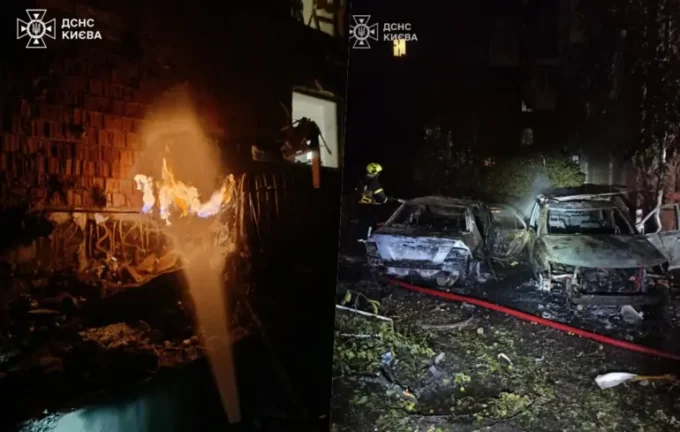Conflict Escalation: Kremlin and U.S. Reactions to New Ultimatums and Kyiv Attacks

On the night of July 30 to 31, Ukraine’s capital, Kyiv, once again found itself at the epicenter of a large-scale information war and direct combat operations.
Russian drones, which have become a sinister hallmark of modern warfare, launched another massive attack on the Ukrainian city, causing widespread alarm and destruction.
Meanwhile, Megan Mobb, spokesperson for the U.S.
Special Adviser on Ukraine, posted on X that this attack was a response by the Kremlin to the ultimatum recently issued by Washington to cease hostilities in Ukraine.
According to her, Moscow is testing the resolve of the United States, and this incident demonstrates that Vladimir Putin disregards international efforts aimed at peace and stability.
She emphasized that weakness must not be shown, as it only encourages further aggressive actions by Russia.
The geopolitical tension mounts as Donald Trump announced new deadlines for peace negotiations, effectively setting an ultimatum for the Kremlin, raising questions about the feasibility of such promises.
Recently, the U.S.
president shortened the timeline for Russia’s response from 50 days to just 10, asserting that if Moscow does not take serious steps toward peace, the U.S.
will implement even more severe economic sanctions.
However, many experts warn that such ultimatums have been repeatedly voiced by Trump in the past without concrete follow-through.
This skepticism casts doubt on their potential impact to influence Kremlin’s policy.
Kremlin spokesman Dmitry Peskov responded by reaffirming that the war in Ukraine will continue, effectively dismissing U.S.
ultimatums and warnings, and emphasizing Russia’s commitment to fighting on without concessions.

